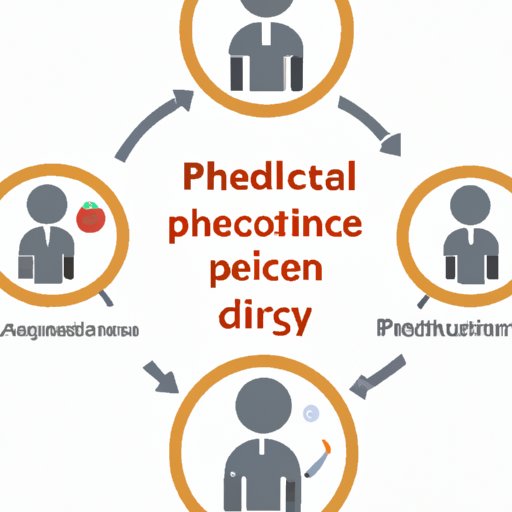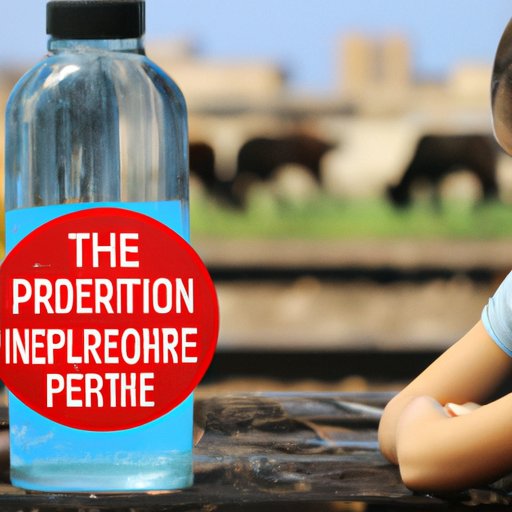Introduction
A public health degree is an advanced academic qualification in the field of public health. This type of degree provides students with the knowledge and skills necessary to become a successful public health practitioner. The degree can be obtained through a variety of educational institutions, including universities and colleges. Public health degrees are offered at both the undergraduate and graduate level.
The field of public health is concerned with the promotion of health and the prevention of diseases and injuries. It is a multidisciplinary field that involves a variety of disciplines, such as epidemiology, biostatistics, environmental health, nutrition, health services administration, and social and behavioral sciences. As a result, a public health degree provides graduates with a wide range of career opportunities.

Exploring Career Opportunities for Public Health Graduates
Public health graduates have a number of career options available to them. Some of the most popular career paths include becoming a public health educator, getting involved in research, using a public health degree in policymaking, and exploring opportunities in international public health. Let’s take a closer look at each of these career paths.
Becoming a Public Health Educator
One of the most common career paths for public health graduates is to become a public health educator. Public health educators work to educate individuals and communities about health-related topics, such as disease prevention, healthy lifestyles, and emergency preparedness. They may also develop health education programs and materials for schools, organizations, and community groups.
Getting Involved in Research in the Field of Public Health
Another career path for public health graduates is to become involved in research in the field of public health. Public health researchers conduct studies to better understand the causes of disease, how to prevent it, and how to improve public health outcomes. They may also develop new treatments or interventions for specific health conditions.
Using a Public Health Degree in Policymaking
Public health graduates can also use their degree to pursue a career in policymaking. Public health policymakers are responsible for developing policies and regulations to improve public health outcomes. They may also be involved in advocating for public health initiatives and funding.

Understanding the Role of Public Health Professionals in Disease Prevention
Public health professionals play a key role in disease prevention. They work to identify risk factors associated with specific diseases and develop programs to promote healthy behaviors. They may also work with communities to reduce risk factors and provide support to those who are at risk of developing certain conditions.
The Role of Public Health Professionals in Disease Prevention
Public health professionals are involved in identifying potential risk factors for diseases and developing strategies to reduce those risks. They may work with local governments, healthcare providers, and other stakeholders to develop programs to promote healthy behaviors and reduce the prevalence of certain diseases. They may also work with communities to identify risk factors and create interventions to reduce them.
Developing Programs to Promote Healthy Behaviors
Public health professionals are also involved in developing programs to promote healthy behaviors. These programs may include creating public awareness campaigns, providing health education to schools and community groups, and developing resources to help people make informed decisions about their health.
Working with Communities to Reduce Risk Factors
Public health professionals work with communities to identify risk factors and develop interventions to reduce them. They may work with local governments to create policies and regulations that promote healthy behaviors. They may also work with healthcare providers to develop programs to provide access to healthcare services.

Exploring Opportunities in International Public Health
Public health graduates may also find career opportunities in international public health. International public health includes working with non-governmental organizations (NGOs) to assess healthcare systems in other countries, supporting global health initiatives, and advocating for improved access to healthcare services. Here are some of the ways public health graduates can get involved in international public health.
Working with Non-Governmental Organizations
Public health graduates can work with NGOs to assess healthcare systems in other countries. They may also work with NGOs to develop strategies to improve access to healthcare services and resources.
Assessing Health Care Systems in Other Countries
Public health graduates can also assess health care systems in other countries. They may review existing health care systems and recommend changes to improve access to healthcare services. They may also develop strategies to address health disparities between different populations.
Supporting Global Health Initiatives
Public health graduates may also be involved in supporting global health initiatives. These initiatives may include advocating for improved access to healthcare services, developing programs to reduce health disparities, and raising awareness about public health issues.
Investigating the Role of Public Health Professionals in Disaster Relief and Response
Public health professionals are also involved in disaster relief and response. They may assess the impact of disasters on communities and develop strategies to mitigate the effects of disasters. They may also provide support to affected populations by providing medical care, food, and shelter.
Assessing the Impact of Disasters on Communities
Public health professionals may assess the impact of disasters on communities. They may investigate the physical, economic, and social impacts of disasters and develop strategies to address them.
Developing Strategies to Mitigate the Effects of Disasters
Public health professionals may also develop strategies to mitigate the effects of disasters. These strategies may include developing programs to provide medical care and other resources to affected communities, as well as creating public awareness campaigns to educate people about the risks of disasters.
Providing Support to Affected Populations
Public health professionals may also provide support to affected populations. They may provide medical care, food, and shelter to those in need. They may also provide psychological support to those who have experienced trauma due to the disaster.
Conclusion
Public health degree holders have a wide range of career opportunities available to them. From becoming a public health educator to getting involved in research, policymaking, and international public health initiatives, there are many ways to use a public health degree. Additionally, public health professionals are also involved in disease prevention, disaster relief, and response.
No matter which career path you choose, a public health degree provides you with the knowledge and skills necessary to be successful in the field. With a public health degree, you will be able to make a difference in the lives of individuals and communities.
(Note: Is this article not meeting your expectations? Do you have knowledge or insights to share? Unlock new opportunities and expand your reach by joining our authors team. Click Registration to join us and share your expertise with our readers.)
